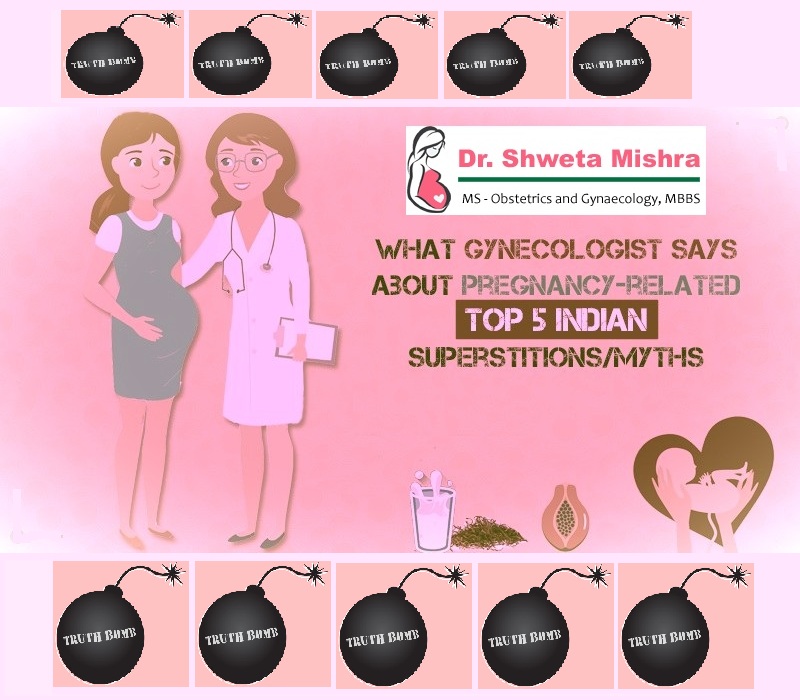

Before knowing the important foods that should be included in the PCOS diet menu, it is necessary to know what PCOS is. PCOS is the abbreviated form of Polycystic Ovary Syndrome, also known as the Stein-Leventhal Syndrome. To know more Click Here.
Obesity and weight gain is a common symptom of PCOS. In this condition, several cysts appear in the ovaries, and they form a pattern like a string of pearls. Women with PCOS may also have high testosterone levels that lead to excessive hair growth, male pattern baldness, and acne and irregular menstrual cycle because the testosterone prevents the ovaries from releasing the egg every month. PCOS is one of the ruling causes of infertility in women, and it comprises 70% of the infertility issues. A well-planned Low GI weight loss diet and regular exercise and physical activity are the best solutions to the question of how to overcome obesity and control PCOS problems and symptoms.
The following is a healthy PCOS food list that can be included in the daily diet in order to manage the polycystic ovarian disease in a more effective manner and prevent weight gain which is one of the most recognizable symptoms of this condition.
Green Leafy
Vegetables
The benefits of eating fruits and vegetables to lose
weight are well known, but it also helps to control Polycystic Ovary Syndrome
naturally. Leafy vegetables have maximum nutrients per calories compared to
other foods and also rich in calcium, iron, potassium, magnesium along with vitamins K, C, and E and most importantly essential B vitamins which play an
imperative role in managing the symptoms of PCOS. B vitamins – especially B2,
B3, B5, and B6 help in better sugar and fat metabolism, improve thyroid
functioning and render better hormone balance, improve fertility all of which are essential for PCOS management.
The minerals help to neutralize the acidity caused by inflammation and impaired
glucose tolerance. Calcium helps in egg maturation and follicle development in
ovaries; potassium is needed for FSH (Follicle Stimulation Hormone) production.
It helps to reduce PMS symptoms and also promotes weight loss.
Coloured
Vegetables
Brightly colored vegetables not only makes for an
appetizing salad but also helps in controlling PCOS and must be included in the
PCOS diet plan. Colorful vegetables are loaded with powerful antioxidants that
help to neutralize the harmful effects of oxidative stress in women suffering
from PCOS. Some of the healthiest colored vegetables include red and yellow
bell peppers, sweet potatoes, tomatoes, carrots, eggplant, etc.
Fruits
This is the next set of healthy foods that must be included in PCOS diet recipes. Although most women suffering from PCOS are reluctant to include fruits in their diet because of the fructose content that causes a sudden spike in blood sugar levels and consequently insulin levels, fruits are really rich in phytonutrients, vitamins, minerals, and fibers so they should not be avoided entirely.
Include fruits that have low GI such as lime,
strawberries, apricot, grapefruit, lemon, cantaloupe, guava, pear, oranges,
watermelon, blueberries, nectarines, apples and kiwifruit and also eat a handful of nuts or seeds with the fruits for the much-needed protein boost that
helps to control the sudden sugar spike caused by fruits. You can also try
delicious kiwi smoothie recipes that are loaded with nutrients.
Healthy Fats
Not all fats are unhealthy and harmful for women
suffering from PCOS. Healthy fats and essential fatty acids are indispensable
for maintaining the cells and removing toxins from the body as well as
promoting hormonal balance and weight management. Healthy fats also hold an
important place in the PCOS fertility diet. Healthy fats are found in seeds, nuts,
avocado, olive oil, and oily fishes like tuna and salmon. We are well aware of
the use of olive oil for body and overall health, but oily fishes are not far
behind. Salmon is an amazing source of healthy fats and vitamin D that helps
relieve certain problems related to PCOS. Tuna is rich in B vitamins and
vitamin D both of which are essential for women with PCOS.
Organic Meat
Because weight gain is a major issue related to PCOS, it
is important to include lean proteins in a PCOS weight loss diet in order to
control body weight. Meat is one of the powerful natural sources of protein.
But you must opt for organic lean cuts of meat that contain fewer hormones and
pesticides and are not genetically modified.
Low GI
Carbohydrates
It is not necessary to completely shun carbohydrates even if you have PCOS, you just need to choose the carbohydrates judiciously. Carbohydrates with high Glycemic Index such as instant breakfast cereals, white bread, white bagels, and white rice cause the fast rise and blood sugar levels which in turn increase the release of insulin from the pancreas in order to use the glucose for energy, but high levels of insulin in the body eventually leads to insulin resistance and obesity which worsens PCOS symptoms. Therefore, it is suggested to opt for healthy carbohydrates with a low Glycemic Index that takes longer to break down and digest, causing a slow and consistent release of blood glucose in the body. Low GI foods also aid to keep you satiated for longer and prevent cravings. Most legumes, beans, and lentils and non-starchy vegetables have low GI rating.
Foods Groups to Avoid in a PCOS Diet Menu
Healthy polycystic ovaries diet recipes should exclude
foods from these 7 food groups because they usually affect the insulin level in
the body and worsen the polycystic ovary symptoms.
High GI Foods
As already discussed before, foods that have high
Glycemic Index promotes a sudden rise in blood sugar level which in turn leads to
increased release of insulin which works to regulate the glucose released into
the bloodstream. Although high GI Foods are tasty and good to eat, they are
also high in calories and lacking in nutrients which make them unhealthy.
Dried fruits and
nuts
Some of the unhealthy high GI foods that we consume every
day are biscuits, cakes, white bread, pies, rolls, white pasta, white rice,
most breakfast cereals, dried fruits, soda, candy, flavored yogurt, ice
creams, fruit juices and packaged soups.
Ad diet rich in sugar and simple carbohydrates is directly linked to
PCOS; sugars not only affect the insulin levels but also disrupt ovulation.
Dairy Products
Although dairy products and milk are an essential part of
a balanced diet chart, they can be harmful in the case of PCOS. Therefore, this
healthy food also comes under the list of foods to avoid with PCOS. Consumption
of milk can increase testosterone levels and a particular type of protein in
milk also limits regular processing of testosterone in the body which causes
the testosterone levels to keep rising without any barrier and it only makes
the PCOS symptoms worse. Therefore, it is best to avoid milk, cheese, yogurt,
butter, and other milk products as much as possible.
Soy Products
Most intolerant individuals or those who avoid dairy
products immediately turn to soy as a healthy substitute. But this can’t be
done in the case of PCOS. It has been found that soy is implicated in delayed
ovulation which can make things worse for women with PCOS. So, it is best for women with PCOS to avoid
soy products and exclude it, especially from the PCOS pregnancy diet if they are
trying to conceive.
Unhealthy Fats
The next food group that should be strictly excluded from
the polycystic ovary syndrome diet is unhealthy fats such as saturated fats,
hydrogenated fats and trans fats that aggravate the problems of PCOS. Saturated
fats are present in fatty cuts of red meat and dairy products, and it causes an
increase in production of oestrogen which hinders the absorption of certain
nutrients in the body and promote weight gain.
Processed meat
Trans fats and hydrogenated fats found in cooking oil,
processed foods and margarine increase the risk of heart disease and
diabetes mellitus in women with PCOS.
Caffeine
We are already aware of the numerous coffee
disadvantages, and it has been seen that excessive consumption of coffee (4 or
more cups a day) can also affect fertility in women. Because PCOS already has a
direct impact on fertility, coffee can make things worse. Daily intake of
coffee increases the levels of estradiol, a type of oestrogen hormone which
affects ovulation and menstrual cycle. You can definitely cut down or eliminate
caffeine from your diet to see if it lessens the PCOS symptoms and improves
fertility.
Alcohol
It is well known that alcohol consumption increase the
risk of PCOS in women by almost 50% compared to those who don’t drink alcohol.
The liver is the key organ that eliminates excess oestrogen from the body, but
regular alcohol consumption puts excess pressure on the liver where flushing
out the alcohol becomes its prime objective and the task of removing oestrogen
is pushed to the background which creates an oestrogen dominant environment in
the body. In addition, alcohol is readily converted into sugar in the body
which contributes to insulin resistance and impaired glucose tolerance. The
acidity created by alcohol aggravates inflammation and makes things worse both
for people with Type 2 Diabetes and PCOS.
Processed Foods
Last but not least are processed foods, which have a great impact on PCOS. The additives, chemicals, flavors, and preservatives present in processed foods boost the release of prostaglandin hormone which triggers inflammation which in turn increases levels of insulin in the body. Eat whole foods instead that are in their natural form.
 The Signs Of First Period & How To Talk About It
The Signs Of First Period & How To Talk About It
 Top 5 Indian Pregnancy Related Superstitions Myths
Top 5 Indian Pregnancy Related Superstitions Myths
 What is Breech? What Causes A Breech Pregnancy?
What is Breech? What Causes A Breech Pregnancy?
 Nutritional Needs During Pregnancy
Nutritional Needs During Pregnancy
Copyright © 2020 Dr. Shweta Mishra. All Rights Reserved.
Design & Developed by Ashrisha IT Solutions
Disclaimer: The content on this website is only intended for educational purposes and to create knowledge amongst masses about women's health and obstetrics & gynaecology. Hence, no information issued on this website shall be treated as an alternative to consultation from a certified obstetrician & gynaecologist. The results can vary from women to women depending on their specific health conditions.